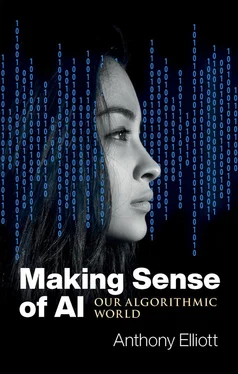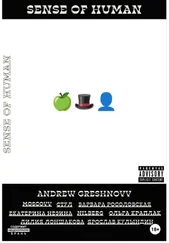1 ...6 7 8 10 11 12 ...15 Yet in fact the control of social activities through digital surveillance is by no means complete in algorithmic modernity, where data flows are fluid, liquid and often chaotic, and many forms of self-mobilizing and decentred contestation of surveillance appear. This development has not come about, as followers of Foucault contend, because of panoptical power advancing digitalization-from-above techniques of surveillance. Rather, what occurs in the present-day deregulated networks and platforms of digital technology is users sharing information with others, uploading detailed personal information, downloading data through search, retrieval and tagging on cloud computing databases, and a host of other behaviours which contribute to the production, reproduction and transformation of the dense nets that I call disorganized surveillance . We should understand this development in terms of organized, control-from-above, Panopticon-style rule of administered surveillance being phased out and decommissioned. Disorganized surveillance is not so much a control of activities of subordinates by superiors as the dispersion and liquidization of the monitoring of self and others in coactive relation to automated intelligent machines.
1 1 There have been some notable exceptions to the mainstream retelling of AI history, and important contributions which seek to narrate alternative histories of AI. The work of Genevieve Bell is of special significance in this connection. See, for example, Paul Dourish and Genevieve Bell, ‘“Resistance is Futile”: Reading Science Fiction and Ubiquitous Computing’, Personal and Ubiquitous Computing, 18 (4), 2014, pp. 769–78; and Genevieve Bell, ‘Making Life: A Brief History of Human–Robot Interaction’, Consumption Markets & Culture, 21 (1), 2017, pp. 1–20. The recent contributions of Australian historian Marnie Hughes-Warrington on historical machines are another significant attempt to narrate the history of technology otherwise. See also the interesting set of essays in Jessica Riskin (ed.), Genesis Redux, University of Chicago Press, 2017, especially in parts 2 and 3.
2 2 See, for example, Jerry Kaplan, Artificial Intelligence: What Everyone Needs to Know, Oxford University Press, 2016.
3 3 J. McCarthy, M. L. Minsky, N. Rochester and C. E. Shannon, ‘A Proposal for the Dartmouth Summer Research Project on Artificial Intelligence’, 31 August 1955: http://raysolomonoff.com/dartmouth/boxa/dart564props.pdf
4 4 See Nils J. Nilsson, The Quest for Artificial Intelligence: A History of Ideas and Achievements, Cambridge University Press, 2010.
5 5 See Ibn al-Razzaz al-Jazari, The Book of Knowledge of Ingenious Mechanical Devices, trans. Donald R. Hill, Springer, 1979.
6 6 See Kevin LaGrandeur, ‘The Persistent Peril of the Artificial Slave’, Science Fiction Studies, 38, 2011, pp. 232–51.
7 7 See ‘The Fall of “Old Brass Brains”’, Product Engineering, 41 (1–6), 1970, p. 98.
8 8 Alan M. Turing, ‘I. Computing Machinery and Intelligence’, Mind, LIX (236), 1950, pp. 433–60.
9 9 John Searle, ‘The Chinese Room’, in R. A. Wilson and F. Keil (eds.), The MIT Encyclopedia of the Cognitive Sciences, MIT Press, 1999, p. 115.
10 10 Susan Schneider, Artificial You: AI and the Future of Your Mind, Princeton University Press, 2019, pp. 11–12.
11 11 The best account of globalization as a multidimensional institutional force remains David Held et al., Global Transformations, Polity, 1999.
12 12 M. Mitchell Waldrop, The Dream Machine: J. C. R. Licklider and the Revolution That Made Computing Personal, Stripe Press, 2018, p. 12.
The rise of AI has stirred massive global controversy. Not just in universities and think tanks, but across industries and business circles. For many, the very idea of AI generates alarm. The advance of AI represents a major threat to jobs, employment, enterprise and industrial manufacture, and stokes up anxieties that pervade many other areas of life too. The more powerful automated systems become, the more many people worry about the risk that artificial general intelligence might result someday in human annihilation or some other irreversible global nightmare. In this scenario, the rise of AI is potentially catastrophic. AI is equated here with an apocalyptic social future. Another response, albeit very different in perspective, views these technological breakthroughs more positively. This response concentrates on new possibilities, hopes – and dreams for a better world. On the face of things, AI is a breakthrough science, and thereby promises great opportunities for the reshaping of economies, societies and political choices today. In this scenario, the coming AI revolution foreshadows the opening of a new era, one which will radically transform people’s daily habits and the world in which they live. AI is a new driver of production and will generate new sources of economic growth, changing how work is done and dramatically increasing growth in businesses worldwide.
The differences between these standpoints, and the stakes involved for economy and society, are great indeed. What emerges very clearly from this controversy, however, is that there is no orthodox consensus on the consequences of AI. On the contrary, divergent interpretations and theories compete for public attention. Newspapers, magazines, radio and TV programmes covering the latest developments in AI highlight an immense diversity of opinions and arguments, in which a mêlée of voices seeks to make sense of the great controversy about the rise of intelligent machines. Nor has AI been properly understood, or effectively responded to, by existing policy frameworks or political traditions. One reason for this is that the political traditions of conservatism, liberalism and socialism are tied, in cross-cutting though distinct ways, to social, economic and political forms of thought associated with industrial modernity. This is perhaps why the impacts of AI have often been understood narrowly – for example, in solely economic terms. Yet the very technologies associated with AI disrupt established economic orthodoxies and political paradigms, creating novel social consequences and powerful global transformations.
The consequences of AI – what it is doing to our economies and societies, and its future possibilities – have to be systematically understood. Contrasting hypotheses, interpretations and theories of AI and its consequences cluster around two main lines of argumentation. The first of these I shall refer to as the position advanced by sceptics . The sceptics are today in a minority, and yet have significantly influenced public opinion and much policy thinking on AI and its ramifications. Simply put, sceptics say that claims of an AI revolution are overblown. For many of a sceptical persuasion, the spectre of AI is too often invoked to explain away complex institutional changes occurring throughout the world today. These are changes to do with the international economy, workplace change and geopolitics. The contrasting, second position is occupied by those I call transformationalists . The AI revolution, argue transformationalists, is creating a world of radical change. This is the dawn of a new era, one in which the intersecting forces of economy, society and politics shift in fundamentally new directions. From this perspective, AI powerfully disrupts traditional ways of doing things, ushering in new economic conditions, social divisions and political alignments.
Two Theoretical Perspectives: Sceptics and Transformationalists
Sceptics
Sceptics of AI characteristically focus upon the many and varied overblown claims of technological innovation and scientific advance in the age of intelligent machines. Instead of providing insight into the technological forces reshaping our standards of living and possibilities for the future of humanity, the discourse of AI, argue many sceptics, obfuscates what is actually occurring in terms of social, economic and political change. Broadly speaking, sceptics say that the discourse of AI is used to explain away complex contemporary problems – especially those stemming from workplace change, international economic convergences and geopolitics. In short, sceptics contend that the great AI revolution is no more than ‘hype’. From this vantage point, the discourse of AI is a kind of cover story for the interests of glossy tech companies, all the way from Google and Yahoo to Facebook, Apple and Amazon. AI is permeated through and through with the culture of global capitalism, and as such is denounced by sceptics as façade, escapism, illusion or distortion. In this respect, the core ideologies of AI – that its growth is exponential, its operations ever faster, its complexity unprecedented – are deconstructed as ‘myths’, through which corporate and governmental powers condition contemporary social practice. Embellishing the sceptical argument of AI as hype or myth, many critics, pundits and anti-technologists have sought to debunk the rise of intelligent machines. Hence a string of sceptical books – including Bob Seidensticker’s Future Hype: The Myths of Technological Change , Gemma Milne’s Smoke and Mirrors: How Hype Obscures the Future and How to See Past It and Robert Elliott Smith’s Inside the Machine: The Prejudice of Algorithms – seeks to reveal the gap between the hype of AI and a world in which, for the most part, technology contributes far less than is often presumed to the routines of everyday life.
Читать дальше

![Джейн Остин - Sense and Sensibility [С англо-русским словарем]](/books/26612/dzhejn-ostin-sense-and-sensibility-s-anglo-thumb.webp)










